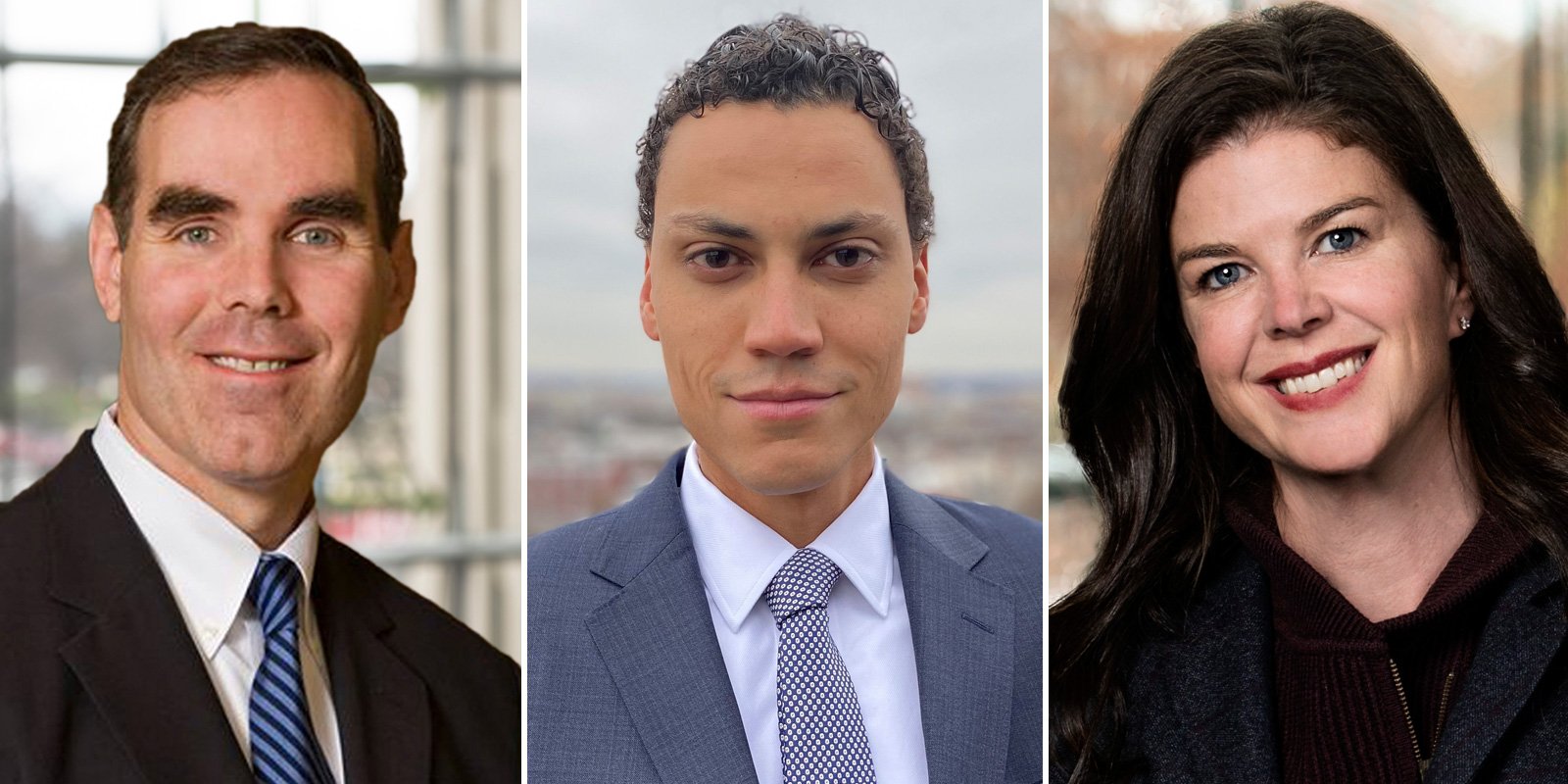
Little-Known Part of Immigration and Nationality Act Packs a Punch (Bloomberg Law)
Writing for Bloomberg Law, former Assistant Attorney General Eric Dreiband, former DOJ Chief of Staff Alexander Maugeri, and former Solicitor of Labor Kate O'Scannlain discuss enforcement trends, including the 2021 settlement with Facebook, important to employers of holders of temporary work visas, such as H-1B visas common in the financial services and technology sectors.
Employers who rely on H-1B visa holders, other temporary workers, or who sponsor green card holders should make sure that their employment practices comply fully with a little-known provision of the Immigration and Nationality Act (INA): Section 1324b. Otherwise, they may find themselves in the crosshairs of the Justice Department, the Labor Department, plaintiffs' lawyers, or all three.
A recent court decision and the accompanying $14 million settlement between Facebook and the Justice and Labor Departments involving alleged H-1B visa and green card practices exemplifies these risks.
Citizenship-Status Discrimination Under the INA
President Ronald Reagan signed the Immigration Reform and Control Act in 1986. IRCA was a quintessential congressional compromise. It established employer sanctions for hiring unauthorized immigrants, ushering in today's Form I-9 verification system. It also legalized many immigrants who then were present in the U.S. without authorization.
IRCA also established 8 U.S.C. § 1324b. Section 1324b created a new kind of prohibition under the INA: employers cannot discriminate in hiring, firing, or recruitment against protected workers because of their "citizenship status." Section 1324b reflects concern for American workers and for work-authorized immigrants in the U.S. It protects U.S. citizens, certain lawful permanent residents, and those granted asylum or refugee status.
Section 1324b also authorizes employers to favor a U.S. citizen over a non-citizen if "the two individuals are equally qualified." According to one of IRCA's lead architects in Congress, this exception responded to the concern that Section 1324b's inclusion of citizenship-status discrimination protection for foreign‑immigrant workers "would have the effect of discriminating against U.S. citizens."
Enforcement Authorities
The DOJ's Civil Rights Division enforces Section 1324b, including discrimination against U.S. workers in favor of temporary visa holders. DOJ can launch investigations, investigate charges by aggrieved workers, subpoena documents and witnesses, and file individual and class action-style lawsuits against employers.
Section 1324b also authorizes workers to file their own lawsuits, and prevailing plaintiffs can recover their attorneys' fees, as well as obtain injunctions, civil penalties, and back pay.
All Section 1324b litigation starts in the Office of the Chief Administrative Hearing Officer (OCAHO) and the U.S. courts of appeals review their rulings. OCAHO judges have applied Rule 23 standards to decide whether to certify a private class action.
Hiring temporary visa holders also implicates the Labor Department's enforcement authority. DOL's Wage and Hour Division enforces INA protections for temporary workers. Employers who wish to sponsor a foreign worker for permanent work authorization, such as with a green card, must obtain certification from DOL before the employer can submit an immigrant petition to the Department of Homeland Security.
That process includes a certification that there are not sufficient U.S. workers "able, willing, qualified and available to accept the job opportunity" and "that the employment of the foreign workers will not adversely affect the wages and working conditions of similarly employed U.S. workers." A false certification can carry criminal penalties under federal false statements statutes.
Recent Government Enforcement
DOJ's late-2021 enforcement actions show that the government is continuing aggressive enforcement of Section 1324b as to temporary visa holders.
For example, in November 2021, DOJ found that a Texas manufacturing company, Igloo Products Corp., set aside positions for workers in the H-2B temporary visa program for nonagricultural jobs.
According to DOJ, the company assumed U.S. workers would not be interested in seasonal production-helper positions and, thus, did not consider their applications. The company will pay civil penalties and make back pay available to U.S. workers discriminated against in favor of H-2B visa holders, change its policies and be subject to monitoring by DOJ.
In October 2021, DOJ and DOL announced a joint settlement of allegations that a social media company, Facebook, (now called Meta Platforms Inc.) used the permanent labor certification program (PERM) to sponsor 2,600 H-1B visa holders for green cards, at the expense of U.S. workers. The settlement requires the company to change its practices and to pay up to $9.5 million to eligible victims of discrimination and another $4.75 million in civil penalties.
The settlement grew out of a June 2021 OCAHO determination that the DOJ's lawsuit stated a valid INA claim and that "compliance with DOL regulations does not, in and of itself, eliminate the possibility of an employer acting in a discriminatory manner in violation of §1324b." The settlement also resolved DOL's audit of the company's PERM applications.
In August 2021, DOJ resolved claims that between August 2019 and June 2021, an Illinois information technology staffing and recruiting company, Ameritech Global Inc., illegally posted job advertisements that announced its preference to fill positions with non-U.S. citizen workers and then failed to consider U.S. worker applicants, who nevertheless applied to the job vacancies.
DOJ announced it will pursue employers "who discourage and refuse to hire eligible job applicants based on their citizenship or immigration status."
Implications
The federal government's focus on enforcing protection for U.S. workers illustrates that employers should analyze the requirements of the INA's anti‑discrimination provision and their regulatory obligations about temporary or permanent worker programs.
Often, copycat litigation by the private plaintiffs' bar follows government enforcement. In 2020, OCAHO recognized the ability of a U.S. citizen plaintiff in a private lawsuit validly to allege a claim of discrimination against an IT company for its and its staffing firm's practices in the initial hiring of an H-1B worker.
Similar claims involving advertising or the PERM program concerning U.S. workers, including potential class-action style claims, could be on the horizon.
Reproduced with permission. Published Jan. 19, 2022. Copyright 2022 The Bureau of National Affairs, Inc. 800-372-1033. For further use, please visit http://www.bna.com/copyright-permission-request/



